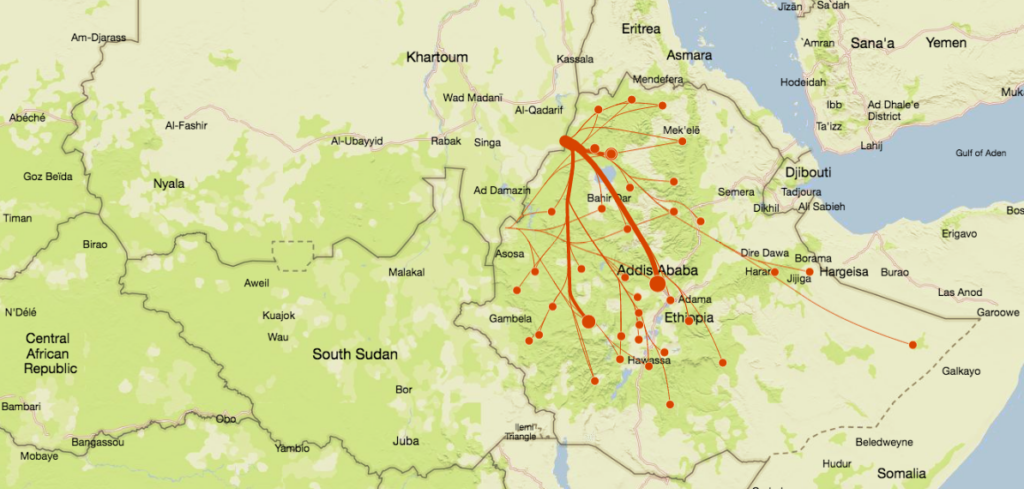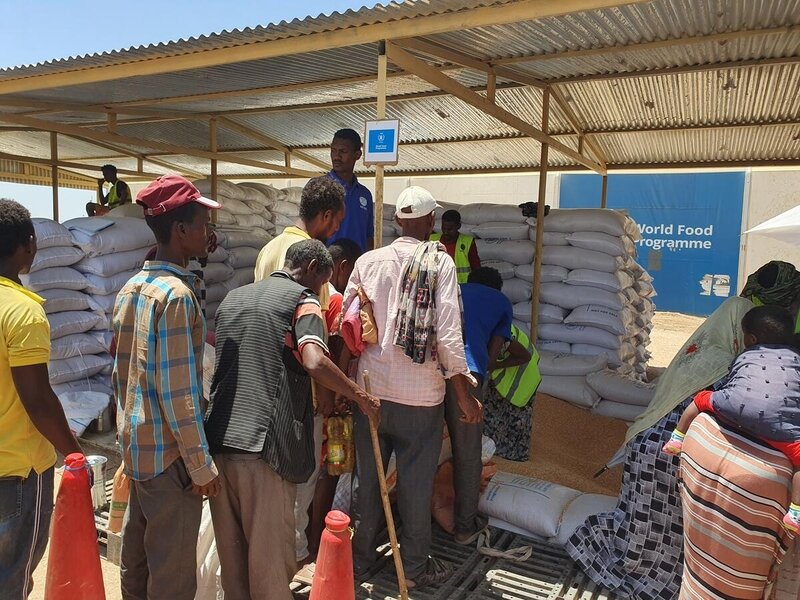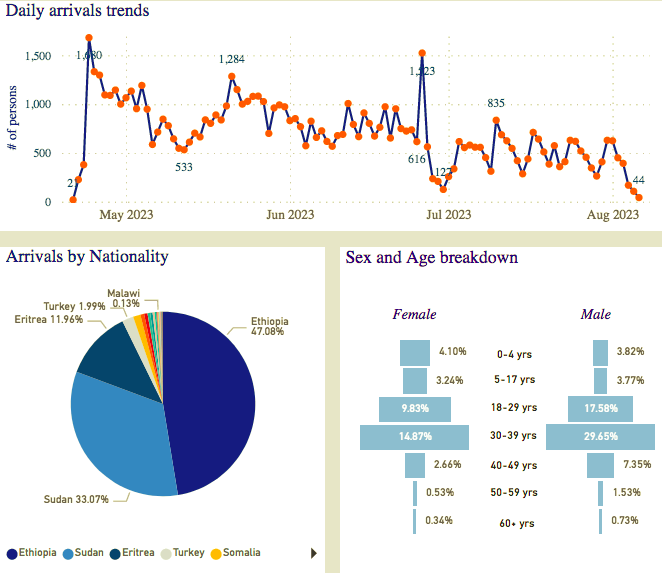Sudanese arriving in Ethiopia flee from war to war

Intended destinations of asylum seekers arriving in Ethiopia, according to data gathered between April 21 and August 7 (Source: International Organisation for Migration)
Sudanese residents of Gondar and Bahir Dar in Ethiopia’s Amhara region reported they were forced to leave the towns after flights resumed to the Ethiopian capital Addis Ababa. Bakri El Ajmi, a Sudanese resident of Bahir Dar, told Radio Dabanga that several Sudanese fled to Addis Ababa in search of security after fighting broke out in the region between the army and local militiamen.
Fighting killed at least 26 people in the Amhara region between the Ethiopian army and local Fano militiamen last week before the army took control of the situation in major cities.
Flights between Addis Ababa and Bahir Dar and Gondar resumed last Thursday, while authorities in El Gedaref opened the Galabat border crossing for asylum seekers and returnees, along with the movement of goods and commodities.
Last week, Radio Dabanga reported that the closure of transportation routes and flight suspensions to Addis Ababa left Sudanese people confined, with some individuals facing the dual challenge of expiring visas and financial hardships.

Bakri El Ajmi said they lived through “hard days” in Bahir Dar after roads, restaurants, and shops were closed for about a week. “Water and food were unavailable, and the telephone and internet network was cut off,” he told Radio Dabanga.
Sudanese in Ethiopia are forced to pay US$80 in visa fees without regard to the war in the country, and that the Ethiopian authorities oblige them to pay US$80 a month to renew residency either in El Matama on the Sudanese border or the Ethiopian capital, which costs them vast amounts of cash.
El Ajmi said that before the outbreak of war in the Amhara region this month, the Sudanese submitted a request to the Ethiopian authorities to exempt them from visa renewal. Ethiopian authorities require foreigners to pay a three-dollar residency fine for each day.

“Most Sudanese people crossed the land border into Ethiopia after the war broke out in Sudan on April 15 in search of security,” said El Ajmi. “Authorities were giving them the choice of seeking asylum or obtaining a visa to enter the country.”
He said asylum seekers were staying in makeshift centres until they were deported to two camps, one fifteen minutes from the border and the other adjacent to Gondar.
According to the U.N. Office for the Coordination of Humanitarian Affairs (OCHA), more than 23,200 people had crossed the border into Ethiopia by the end of July to the Gambela and Benishangul-Gumuz regions, Amhara, and Tigray. Most of them pass through the El Matama crossing, adjacent to Galabat in Sudan.











 and then
and then